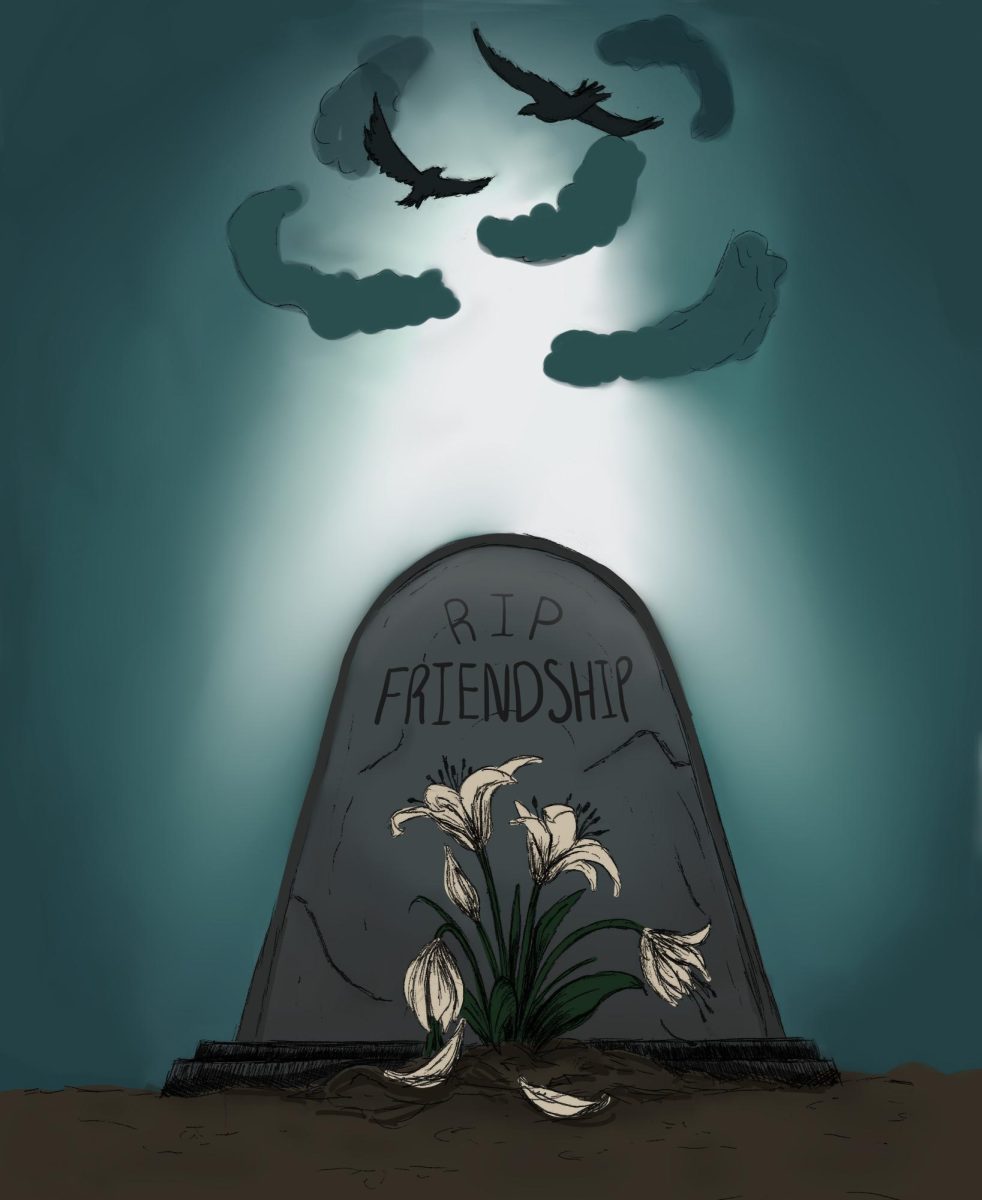Friendships are the very basis of human connection and interaction. Wherever we go, at whatever age, we are constantly inclined to meet new people and form friendships. Friends are meant to be supportive—a guiding light to a better future. However, we all know that feeling when we notice a friendship tipping from a once strong connection to an anchor holding you back. In every echelon of society—modern, historical, fiction, reality, you name it—there exists a form of suffocation known as peer pressure.
It starts with just convincing a friend to ‘borrow’ answers, but can quickly turn into coercing them into doing something dangerous. Whatever it may be, there exists a wide range of avenues where peer pressure can be applied. The abject relation with these types of peer pressure is that they involve an individual who was supposed to be a friend.
Well, friends are meant to help each other, so what’s wrong with borrowing answers? It’s just an assignment, right?
Let’s look at it this way: friendships are relationships that are meant to serve a positive purpose, helping one blossom into an impeccable individual. Yet, we all probably know that some friendships have caused quite the opposite, instead creating a feeling of obligation to do something for your friend. But are you doing it for your friend, or for your friendship?
A friendship is defined as the connection between two individuals that have naturally reached a comfortable level of trust, while a friend is, of course, the title of the person being referred to. When you do something for your friend, you’re genuinely doing it for the person you care about, but doing something for your friendship is more like trying to keep the boat afloat for namesake. In other words, people are peer pressured by their friends because they feel as though that connection will be hindered, or severed even, if they don’t. But it’s when we do things from our heart for our friend, with true intentions, that a friendship will grow. So if you’re giving your friend answers to keep your relationship alive, ask yourself if that’s the path you want to take as you become your own person.
Peer pressure coming from one’s friends can undeniably deter one’s growth. Friendships that rely on pressuring an individual into doing something the other wants aren’t beneficial relationships under any circumstances, especially considering that trust, comfort, honesty, and understanding are the foundation for friendships.
Sometimes, it is belittled as “trivial” because the end result “wasn’t that bad”. But it was. The fear put in you by your friends to either do as they say or be ostracized is something serious that shouldn’t be brushed off. You’re given a choice: get with the crowd at your own expense, or retain your individuality at the cost of social standing or connection. Most destitute teens, yearning for bonds and healthy relationships, will choose to actively sacrifice themselves for the sake of connecting with their peers. This is simply unfair—you’re worth more to yourself than people who force you to make that choice.
The question quickly becomes—how? How can one avoid the indefinite peer pressure they will experience in their life? And what’s the best way to handle these situations? It’s simple, and it starts with just one word:
No.
Feeling the way you feel—for example, discomfort at the idea of letting your friend borrow answers—is your right, and so is acting on it. Saying “no” to anything that makes you uncomfortable isn’t something you need to apologize or feel bad for, especially considering that everyone has their own set of guidelines. Friendships aren’t based on sacrifices, they’re based on compromise.
Of course, for many teenagers, saying this single word with full intent has become increasingly difficult. We say it all the time, but it usually doesn’t carry the same weight as when we really need to say it. Not to mention, with the way the word is so widely used, even if one manages to say no, people don’t respect the word as a true boundary anymore. However, in a world where the pressure to fit in and be “normal” is growing, it is important to be able to not just create but also assert your boundaries. Firmly communicating your boundaries is essential to avoid being coerced into making a bad decision.
So yes, everyone is bound to be peer pressured at some point. The difference between your own fate, however, is determined by one’s ability to recognize these friendships and act on them. When you’re asked to ‘borrow’ answers and you’re uncomfortable with it, simply say no. It all starts with boundaries and the constant reminder that the desire to fit in is never worth sacrificing your own morals and integrity. Prioritize yourself because your true friends will recognize and appreciate you for all of you, including your boundaries.









































